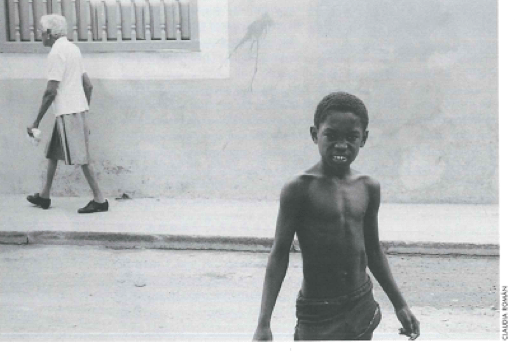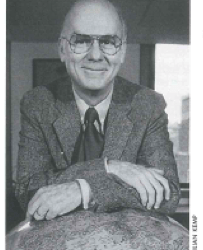Master’s Program in International Education Policy
Spotlight on Equality of Opportunity

Havana, Cuba
A new program in International Education Policy hopes to attract Latin Americans, Latinos, and others interested in building a community of learners interested in issues of equality of educational opportunity worldwide.
The Harvard Graduate School of Education’s new one year master’s program in International Education Policy focuses on understanding education’s role in promoting equal opportunity and in reducing poverty. This program is for those interested in international education policy, focusing on developing countries, as well as students interested in education policy in the US and other OECD countries who want to study education policy issues comparatively. The goal of the program is to develop the necessary skills to develop and evaluate reforms aimed at improving the quality of education provided to children of all backgrounds in basic education systems (K-12) around the world.
At the end of the 20th century educators everywhere are realizing that globalization has changed the context in which schools try to help students learn. Parents, teachers and education policy makers ask themselves: what kind of knowledge and skills will help our students participate successfully in the new global economy? How well do our schools do, relative to the schools of other countries? How have education planners in nearby and faraway countries gone about solving similar problems?
Much has changed in education systems everywhere since the General Assembly of the United Nations subscribed, in December of 1948, the Universal Declaration of Human Rights which declared that every person had a right to free and compulsory elementary education. Since the General Conference of UNESCO approved in 1960 the Convention Against Discrimination in Education, countries around the world have supported many programs to attempt to overcome the inequitable opportunities facing children from different races, ethnic groups, genders or religious affiliations.
Students in the program will help each other learn by thinking together about what remains to be done worldwide to make education systems equitable. It is projected that by the year 2010 there will be 152 million children between 6 and 11 years, and 324 million children between the ages of 12-17 years who will not be attending school, according to a UNESCO report. Today girls are less likely to be enrolled in school than boys and women are far less likely to be literate than men. One in four girls and one in six boys in the 6-11 age group are not enrolled in school. Almost two-thirds of the illiterate adults are women.
The program focus on social inequality emerges from HGSE’s fundamental commitment to using education’s transformative power to improve a world characterized by tremendous inequalities within and across societies. Those who want to help make education systems even more inclusive can learn much by drawing lessons from other contexts. While universal prescriptions for policy reform are hard to find, much can be gained from comparative analysis of the ways in which different societies have gone about trying to achieve their education goals.
The new program, housed in the Department of Administration, Planning and Social Policy, aims to train education policy and evaluation specialists who can initiate and support reform efforts to improve equality of educational opportunity. The program is for those interested in such careers as educational planning, research, non-governmental organizations in the education sector, technical analysts serving teacher unions, and international development work with agencies such as UNESCO, UNICEF, UNDP, the World Bank, and regional development banks.
The program emphasizes the development of analytic skills to enable participants to analyze policy options to improve educational opportunity and draw lessons from comparative cross-national experience with education reform. The coursework concentrates on the following areas: concepts and theory, evaluation and research design, analysis, planning and implementation.
The program director is Fernando Reimers, Associate Professor of Education and DRCLAS policy committee member.
Applicants to the Masters Program in International Education Policy must follow the regular application requirements of the Harvard Graduate School of Education. A personal statement of purpose, transcripts of past academic work, test scores (GRE, TOEFL and TWE), and letters of recommendation must be submitted, along with a completed application form. Applications can be obtained by calling the HGSE admissions office, 495-3414, fax, 4963577, or e-mail:gseadmissions@harvard.edu
For additional information, contact: Masters Program in International Education Policy, Harvard Graduate School of Education ,4th Floor Gutman Library, 6 Appian Way, Cambridge, MA 02138, or http://hugse1.harvard.edu/~apsp_web/iep.html or send an e-mail message to iep@gse.harvard.edu
Spring 1999
June Carolina Erlick, DRCLAS NEWs/ReVista editor-in-chief
Related Articles
Editor’s Notes: Booknotes
On March 10, 1999, President Clinton apologized to the people of Guatemala for the support provided by the U.S. government to that country’s repressive military-backed governments…
Society and Education
As a member of UNESCO’s International Commission on Education for the Twenty-First Century, I’ve come to realize that education is about much more than books. It’s about the “four pillars of…
Noel McGinn’s Life of Learning
Noel McGinn, professor of education, had a normal American childhood in a small, sleepy town directly south of Miami-but 1200 miles south and across the Caribbean, in the Panama Canal Zone…




